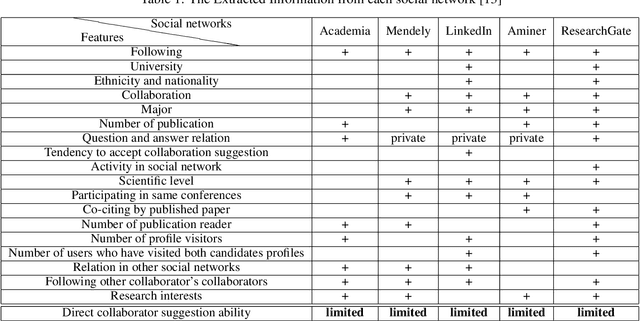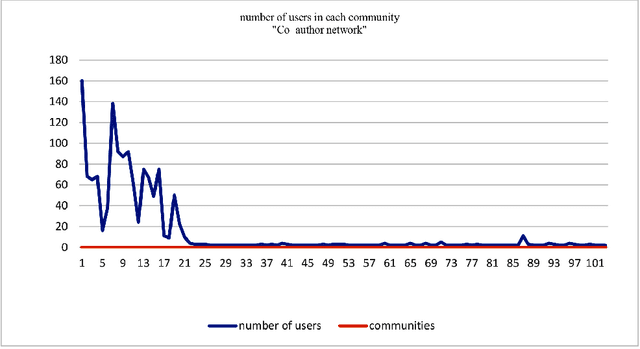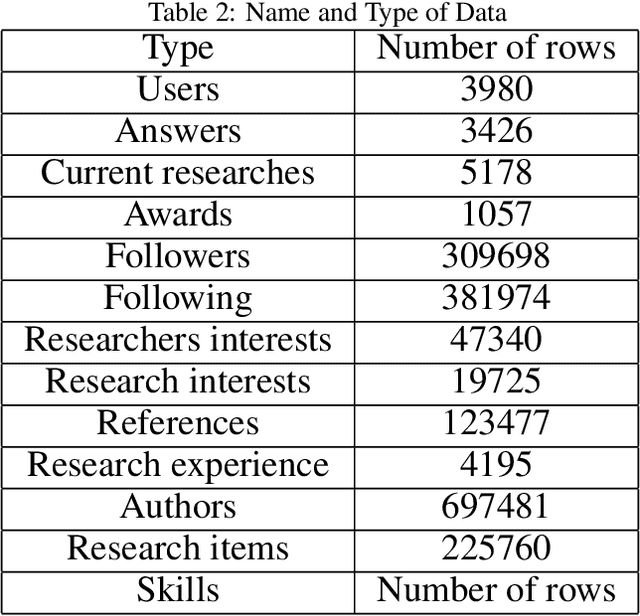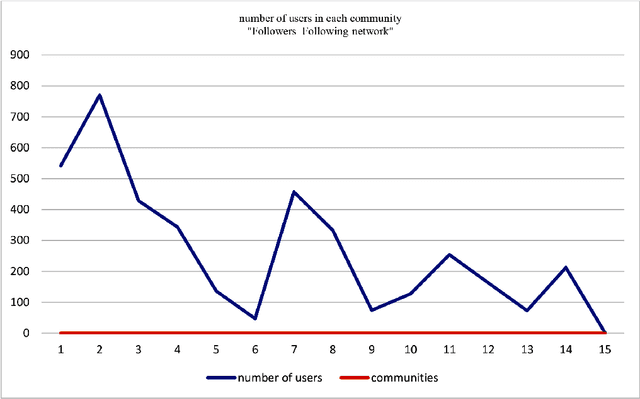Presenting a Dataset for Collaborator Recommending Systems in Academic Social Network: a Case Study on ReseachGate
Paper and Code
Jan 06, 2021



Collaborator finding systems are a special type of expert finding models. There is a long-lasting challenge for research in the collaborator recommending research area, which is the lack of a structured dataset to be used by the researchers. We introduce two datasets to fill this gap. The first dataset is prepared for designing a consistent, collaborator finding system. The next one, called a co-author finding model, models an academic social network as a table that contains different relations between the pair of users. Both of them provide an opportunity for introducing potential collaborators to each other. These two models have been extracted from ResearchGate (RG) data set and are available publicly. RG dataset has been collected from Jan. 2019 to April 2019 and includes raw data of 3980 RG users. The dataset consists of almost complete information about users. In the preprocessing phase, the well-known Elmo was used for analyzing textual data. We call this as \textbf{R}esearch\textbf{G}ate dataset for \textbf{R}commending \textbf{S}ystems (\textbf{RGRS}). For assessing the validity of data, we analyze each layer of data separately, and the results are reported. After preparing data and evaluating the collaborator finding models, we have done some assessments on \textbf{RGRS}. Some of these assessments are co-author, following-follower, and question answering relations. The outcomes indicate that it is the best relation in propagating knowledge in the network. To the best of our knowledge, there is no processed and analyzed dataset with this size.
 Add to Chrome
Add to Chrome Add to Firefox
Add to Firefox Add to Edge
Add to Edge